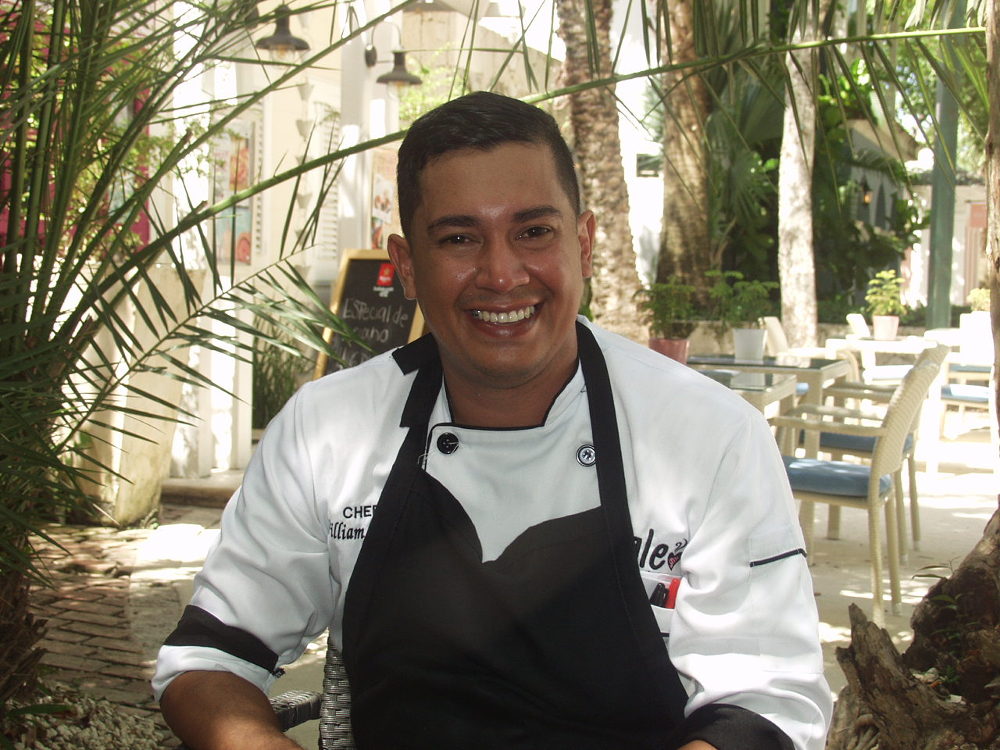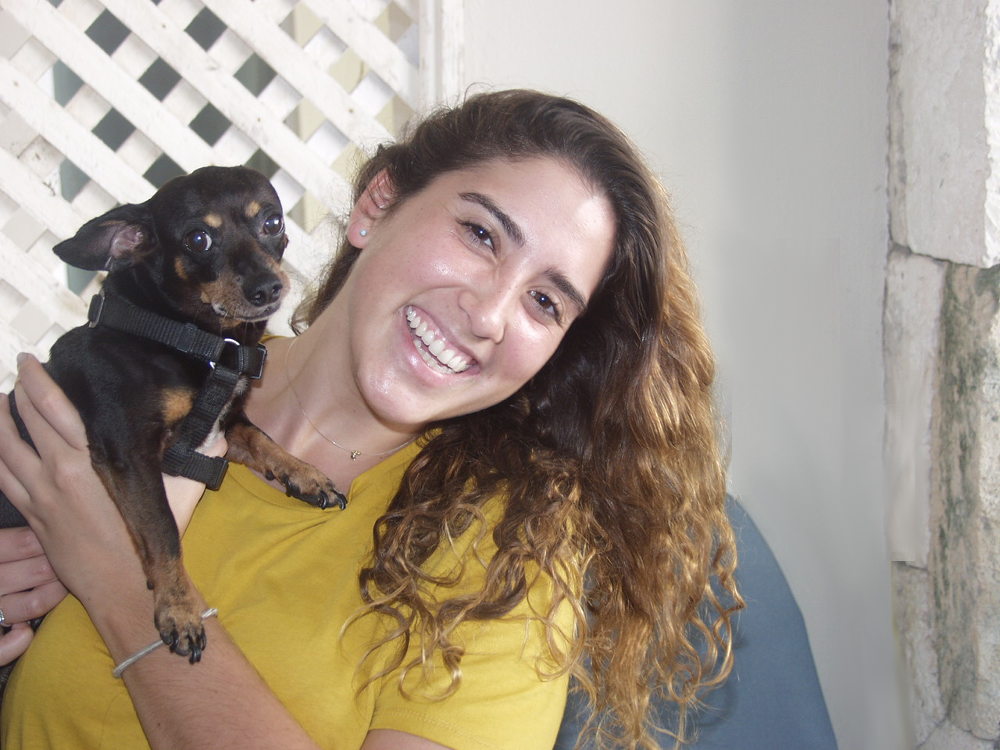The Human side of migration: Real-life stories
William Alberto Ramos
William Ramos gave Via News an interview to explain his experience in the Dominican Republic. [caption id="attachment_4522" align="aligncenter" width="1000"] William Alberto Ramos is a Venezuelan immigrant in the Dominican Republic. Photo by: Joaquin Salazar.[/caption]
"Hello. I'm William, 36 years old, born in Caracas, Venezuela. I've arrived in the Dominican Republic on October 15, 2017."
William told us he still lives with his mother because she was the only member of his family with a passport, which you need to travel from Venezuela. The rest of the family, wife, and two children are still in Caracas, because they don´t have passports. He's paying to get them the needed document but bureaucracy is making it a difficult and slow to solve the problem.
William Alberto Ramos is a Venezuelan immigrant in the Dominican Republic. Photo by: Joaquin Salazar.[/caption]
"Hello. I'm William, 36 years old, born in Caracas, Venezuela. I've arrived in the Dominican Republic on October 15, 2017."
William told us he still lives with his mother because she was the only member of his family with a passport, which you need to travel from Venezuela. The rest of the family, wife, and two children are still in Caracas, because they don´t have passports. He's paying to get them the needed document but bureaucracy is making it a difficult and slow to solve the problem.
"I have always felt very well treated and welcome by Dominicans, except for a couple that reacted like we were taking Dominican jobs. In fact, we are providing jobs here."
Fabiana Ocando, Venezuelan immigrant in the Dominican Republic
Additionally, he says that Venezuelans have noticed a change in attitude after the Dominican vote in the 48th regular session of the OAS General Assembly which condemned Venezuela’s election, as reported by Dominican Today newspaper. He said Venezuelans in the Dominican Republic have noticed a clear decline in the Venezuelan aid to migrants. William currently lives in Punta Cana and has had three jobs during his stay there. Even though he's illegal in the country, he's been working as a chef and the company he works for apparently has the status problem resolved. According to him, the only difference with his Dominican friends is that he gets paid in cash, instead of the usual bank deposits, probably pointing to a separate payroll. He knows that he cannot open a bank account without the Dominican I.D. card, the “cédula”,"we lead a low key life. We are legally illegal here and we don´t go to the beach often because there have been deportation searches where Venezuelans gather."
Fabiana Ocando, Venezuelan immigrant in the Dominican Republic
Once his family has their passports there is no visa requirement and they can travel to Punta Cana. William hopes this happens soon. The Dominican authorities are insisting Venezuelans return to Venezuela to obtain work papers in Caracas. He feels happy, likes his job and declares that he has been well treated by Dominicans. He has not seen any sort of animosity anywhere. William feels that it will be difficult and will take time, but hopes to be able to settle legally in this country soon. We stayed away from politics, but he obviously hopes for a change back home and realizes where the problems began very clearly. In our interview, William came through as a very stable, thoughtful, intelligent man. He made the comment that while in this country he has learned a lot in reference to cooking techniques relative to Dominican cooking. So he clearly can see the good side of things, though he clearly has been through a lot of hardships to get to this point.Fabiana Ocando
Fabiana Ocando gave Via News an interview to make the world aware of what's like to be a Venezuelan immigrant in the Dominican Republic. [caption id="attachment_4523" align="aligncenter" width="1000"] Fabiana Ocando, Venezuelan immigrant in the Dominican Republic. Photo by: Joaquin Salazar.[/caption]
"I'm Fabiana Ocando, from Coro, Estado Falcón, Venezuela.
I am a graduated dentist and worked in my profession for a couple of years in my country. My husband, Juan, went ahead and has been here now for two years, I joined him one year after when my dental company collapsed.
Fabiana Ocando, Venezuelan immigrant in the Dominican Republic. Photo by: Joaquin Salazar.[/caption]
"I'm Fabiana Ocando, from Coro, Estado Falcón, Venezuela.
I am a graduated dentist and worked in my profession for a couple of years in my country. My husband, Juan, went ahead and has been here now for two years, I joined him one year after when my dental company collapsed.
"The Dominican authorities don´t do enough to resolve our status problems and demand that we return to Venezuela to negotiate with the Dominican Consulate there to later find that the Consulate solves nothing."
Fabiana Ocando, Venezuelan immigrant in the Dominican Republic
Public servants started to show up to demand payment of the so-called ”vacuna”, sort of a protection against the demands of other government employees, including the military. My original intention was to go to Chile, considered “paradise” by Venezuelan migrants. Chile is open to migration and favors them by giving work permits and other benefits. The fact that Juan was in the Dominican Republic, and the fact that I had a passport, brought me here to Punta Cana where he had already established an advertising business which we are conducting together very efficiently in the Punta Cana area. I have always felt very well treated and welcome by Dominicans, except for a couple that reacted like we were taking Dominican jobs. In fact, we are providing jobs here. Basically, we lead a low key life. We are legally illegal here and we don´t go to the beach often because there have been deportation searches where Venezuelans gather. Basically, I feel fine here. I like the country and the people. I feel that the Dominican authorities don´t do enough to resolve our status problems and demand that we return to Venezuela to negotiate with the Dominican Consulate there, to later find that the Consulate solves nothing. The basic idea is to have a Venezuelan passport, and then keep a low profile in the Dominican Republic. However, many Venezuelans are getting jobs and making a living as waiters, cooks, secretaries, store salespersons, school teachers, etc. But not in their professions, I cannot, for example, work as a dentist, my profession. The best thing that has happened to us has been the business opportunity we have. The worst: our work status. It´s tough to feel that we are “illegals”. Fabiana struck to me has a bright, intelligent, creative person and I hope their problems get solved soon. They definitely seem like an asset this country would want to keep.
